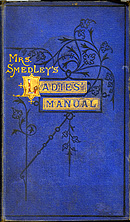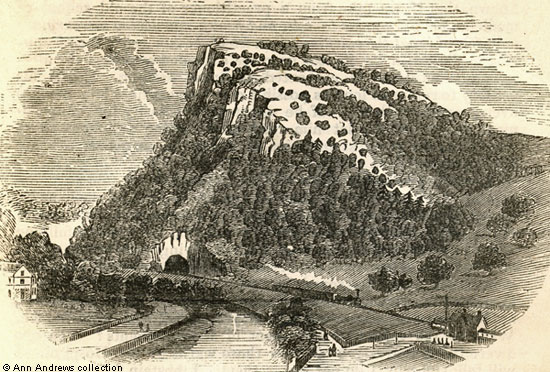|
|
  Caroline Smedley |
||||||||||||
Here we see a train approaching Matlock Bath station on the down line. The railway station buildings are slightly different from those shown in either the Rock & Co. engraving of 1862 or the vignette engraving of High Tor Tunnel from "Bemroses' Guide" of 1869 (scroll down to the bottom of the page). The structure in this image, first published in John Smedley's Practical Hydropathy of 1857, does not have the distinctive overhanging eaves shown on later illustrations or photographs. This image shows us a very still River Derwent, with Dale Road on the opposite riverbank from the station. The artist has placed what was then the vicarage house on the same level as the road whereas the building is actually slightly above the road.
|
|||||||||||||
The above 19th century engraving has been taken from: Smedley, Mrs. (1878/9) "Ladies' Manual of Practical Hydropathy (Not the Cold Water System), 16th ed.", James Blackwood & Co., Lovell's Court, Paternoster Row, London, p.159 By the time this edition was published Mr. John Smedley, Mrs. Smedley's husband, had been dead for some years and the business had been taken over by Smedley's Hydropathic Company (Limited) Caroline Anne Smedley wrote in her preface: "After reading many works on hydropathy in conjunction with my husband, I consider that they are written too scientifically for Ladies who have not studied Medical and Anatomical Works, and who are therefore ignorant of the many terms made use of only in such works, and which are not at all necessary to be known by the generalities of our sex in the ordinary duties of life. This little Manual will therefore be entirely free from such terms ... " This book is in the collection of, the information is provided by and images scanned by and © Ann Andrews. Intended for personal use only The engraving was also published in Smedley's "Practical Hydropathy" |
|||||||||||||












